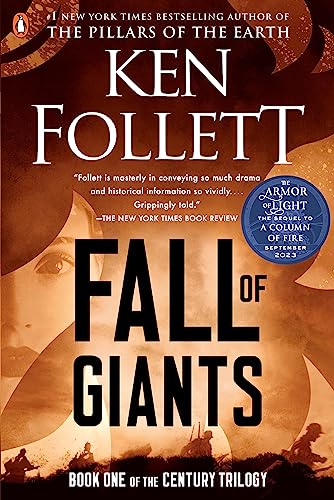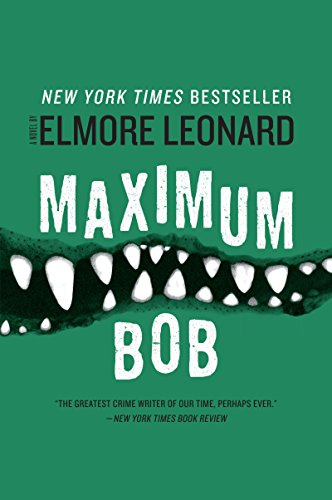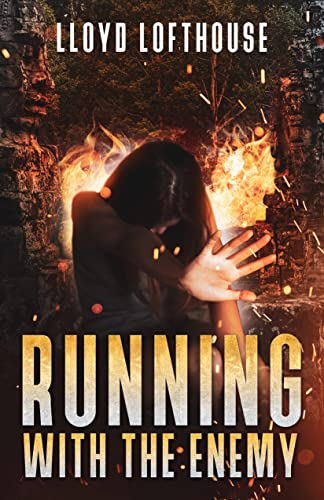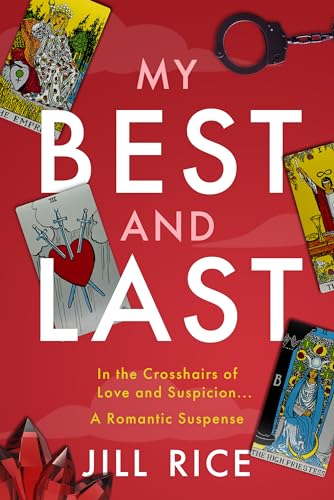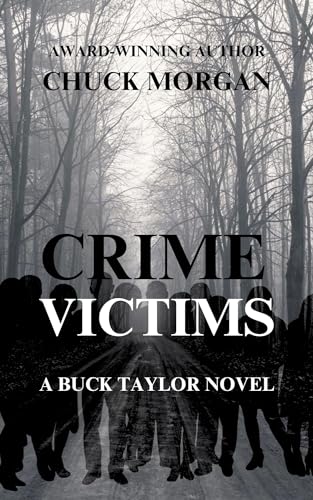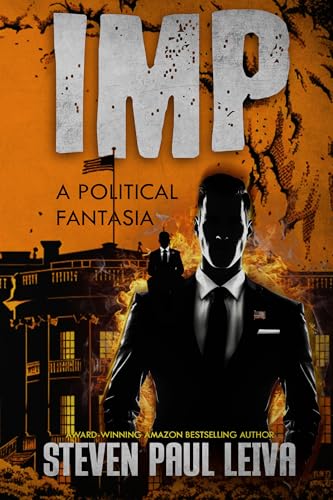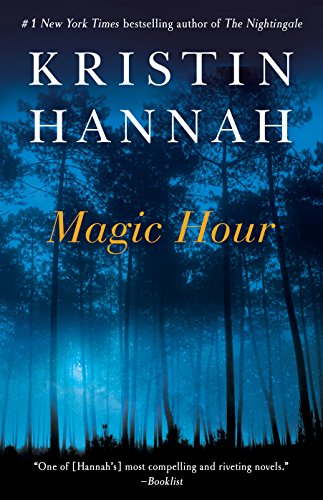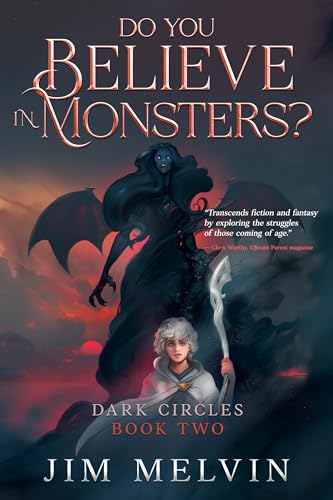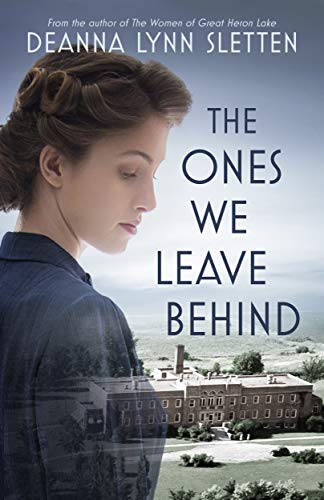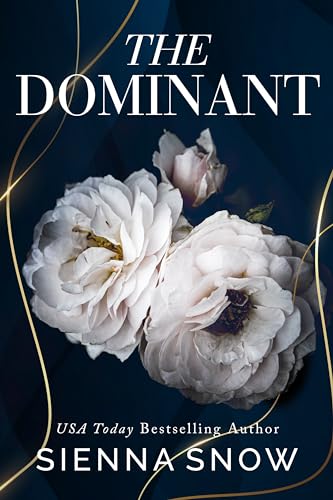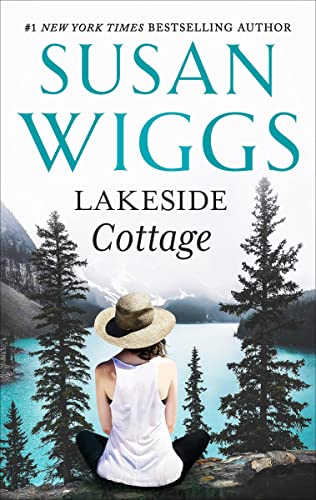2012 National Indie Excellence Awards***KINDLE STORE BESTSELLER***
Historical Literary Fiction
From award-winning and bestselling Kindle Nation fave Kathleen Shoop comes an emotionally charged novel of family secrets and the redemptive power of truth…
set against a little-known piece of America’s past that’s as raw and real as we could ever hope to find…
Historic drama wrapped in a love story…
It’s 1948 in the steel town of Donora, Pennsylvania, site of the infamous “killing smog.” Public health nurse, Rose Pavlesic, has risen above her orphaned upbringing and created a life that reflects everything she missed as a child. She’s even managed to keep her painful secrets hidden from her doting husband, loving children, and large extended family.
When a stagnant weather pattern traps poisonous mill gasses in the valley, neighbors grow sicker and Rose’s nursing obligations thrust her into conflict she never could have fathomed. Consequences from her past collide with her present life, making her once clear decisions as gray as the suffocating smog. As pressure mounts, Rose finds she’s not the only one harboring lies. When the deadly fog finally clears, the loss of trust and faith leaves the Pavlesic family — and the whole town — splintered and shocked. With her new perspective, can Rose finally forgive herself and let her family’s healing begin?
5-star praise for After the Fog:
“…vivid, dramatic…will linger with you long after you close the book…a beautiful story of love, loss and survival.”
“The reader can’t help but get caught up in the lives of the strong yet emotionally wounded characters Kathleen Shoop creates. I found myself completely immersed in their struggles, hopes and dreams.”
an excerpt from
After the Fog
by Kathleen Shoop
Chapter 1
Tuesday, October 26th, 1948
Donora, Pennsylvania
Inside the Greshecky home, Rose pressed the light switch but knew it wouldn’t work. Ian appeared, his form outlined by the paltry light slipping through a gap in the wood siding. Even in darkness his complexion—white as the smoky plumes billowing from the zinc mill—told Rose things were not well with his Aunt. He opened his mouth, but Rose grasped his shoulders and shoved the twelve-year-old toward the kitchen before Ian could form a single word.
“Heat the water. Get the clean towels we hid away for the birth.”
Ian looked at his feet, but didn’t move.
“Go on. You remember,” Rose said.
Ian nodded.
Isabella’s screech from the back of the house summoned Rose toward the bedroom. She groped the walls trying to remember the placement of the furniture. The last thing she needed was to trip and fall. She stepped where the wood floor dropped a few inches into an unfinished dirt path, stumbled and twisted her knee. She grimaced and fell back against the wall, bent over, grasping her throbbing leg. Nothing felt out of place. Another wail. Rose pushed off the wall and limped down the hall toward Isabella. She slammed open the bedroom door, tearing it from its hinge.
In the middle of the shadowy room, Isabella squatted as though urinating, her nightgown splashed with blackened blood, its thick iron odor choking the air. Rose hooked Isabella under the arms and hauled her toward the window, and the mattress on the ground. Rose dug her heels in; thankful traction was the one good attribute of having a mud floor.
She gritted her teeth, wanting to reassure Isabella, to remind her of the slew of births Rose had assisted over the years. But Isabella’s awkward two hundred pounds consumed the energy Rose might have spent on reassuring words.
Isabella groaned and bucked forward. Rose knelt in front of her on the mattress, praying for the moon to move a sliver to the right and illuminate the shadowy room. Rose needed to assess why there was so much blood; Ian was spooked enough to forget the candles she had requested, and his uncle, the baby’s father, was on shift at the mill.
Rose gripped Isabella’s knees and tried to wrench them apart. “It’s all right, you can let go. It’s okay, Isabella. Baby’s coming.” Isabella’s legs gave way and fell open as she dropped back onto the mattress, gasping. Rose felt between the woman’s legs to the baby’s crowned head. She felt a surge of panic at Isabella’s sudden silence, but pushed her fear away.
Rose supported the baby’s head and reached for Isabella’s hand. She squinted, trying to gauge if Isabella’s nails had blued from lack of oxygen, but it was too dark.
“Isabella? You all right? Baby’s here. Prop yourself up, you don’t even need to push, he’s coming, he’s—”
The baby slid out, bringing the usual tumble of cording, but so much more Rose thought she was witnessing the birth of triplets. So much flesh falling through her fingers in the darkness. The rush of blood warmed Rose’s knees, saturating her nurse’s uniform as if it were consuming it.
Her breath tripped and sputtered as she fumbled through the mass of expelled tissue and peeled the baby away. She flipped the body over, whacking its back. Part of Rose understood what she was experiencing, but in the darkness, she could pretend.
“It’s a girl, Isabella. Your baby girl’s here. Just like you wanted. A girl to stay by your side.” Rose worked quickly, firmly opening the baby’s airway and bracing her against her chest, warming her back to life. The baby was definitely full-term, but too thin, and not breathing, heart stilled. Rose cursed herself for not forcing Isabella to take the labor inducement, but the woman thought God alone had the right to induce anything.
“Auntie Bella?”
Rose snapped around. She hadn’t heard anyone come into the room. Behind her stood Ian, a nearly invisible form holding fresh bleached towels that glowed in the twilight. The image of a happy birth flashed through Rose’s mind, a plump, pink baby and healthy mother. Rose’s heart heaved with desolation at what Ian was about to understand.
She waved Ian to her. “I need you to hold this little princess while I tend to your aunt. And, get the scissors from my bag.”
He nodded, handing over the downy towels and dashed to Rose’s bag. She didn’t have time to tell him how to be sanitary when handling them, too busy toweling the blood and fluid from the baby’s eyes, her own burning from the emotion she was stuffing away.
Ian dashed back with the scissors, thrusting them under Rose’s nose.
“She’s okay, right? Both of them?”
Rose lay the baby on the towel, not saying a word, and cut the infant’s cord. Next she swaddled the baby and handed her to Ian. She shuffled him toward the chair across the room and ordered him to sit; fearful he might pass out, afraid if he wasn’t in the room, she might.
Rose resumed her attempts to stop Isabella’s bleeding and rouse her with soft words, knowing the woman died with the birth of her daughter. Even without surgical lighting, Rose saw the woman’s uterus had been expelled with the baby and even in a hospital, it was unlikely she would have survived.
“Sweet Isabella,” Rose whispered, wiping the woman’s hair from her brow. “I’ll put in a call to Dr. Bonaroti.” Rose wiped her hands on the uniform’s apron; angered the physician hadn’t made it to the birth.
“No phone, Nurse Rose,” Ian said, “‘member last time yunz guys come down the house for—”
Ian began hyperventilating, his body shuddering rhythmically, bouncing him out of the chair. His desperation jolted Rose’s own grief. She dashed toward the boy grasping his arms.
“That’ll be enough, Ian. I need your help.”
He looked up, snot flying from his nose, saliva at the corners of his mouth like a rabid animal, and she grabbed him from the chair, hugged him so tight he choked. She held him there, baby between them. Rose eased his pain with the warmth of her skin, hoping that she could stave off the sadness he’d feel as he grew up without his aunt.
“Now Ian. You need to go next door and phone Dr. Bonaroti.” Where was that damn doctor? This was exactly why Donora needed to fund Rose for the next year. If her nearly one year serving as a community nurse had shown her anything, it was that they actually needed three nurses. Just two more months of funding and the program was shot if their data wasn’t convincing.
Rose took the baby and guided Ian from the room. “Tell Alice to tell the doc it’s an emergency.”
She rubbed his back and wanted to say everything would be all right, but she knew nothing would be fine for young Ian. His uncle had a lust for booze and when he wasn’t breaking his neck in the zinc mill, was inattentive even at his most benign.
Though she would have given anything to be one of those people who could lie to make someone feel better, she had discovered through the losses she’d experienced in life, she was not that kind of woman at all.
* * *
With candles finally lit and a mixing bowl of water by the bed, Rose wiped Isabella’s crusting blood with a moist pledget. The blood had hardened into shapes, a map of where a life had drained from a body; the heaviest, black splashes were caked near the opening that should have delivered the world vibrant life instead of death.
Rose swallowed tears and cleared her throat. More could have been done for Isabella. If only there was more than one community nurse in town. No time for tears. She prayed for Isabella, repeating Hail Marys and Our Fathers hoping somehow the act would help usher the lost souls into the afterlife.
A door slammed somewhere in the home and Rose stopped her work. Her lips kept perfect prayerful time. Dr. Bonaroti barreled into the bedroom, stopped short behind Rose, kicking dirt up from the primitive floor. His unusual silence conveyed sorrow that a patient had met her end in the way she had.
“Doctor,” Rose said without looking up from Isabella’s leg.
“Rose.” His voice was low.
She washed Isabella’s legs. Her touch was firm, but gentle, scrubbing as though Isabella’s spirit might feel the cleansing of her flesh. With her free hand, Rose fished around the bowl beside her for another pledget and held it up to Bonaroti. He shuffled around Isabella’s body, taking his place across from Rose.
The doctor and his nurse bathed Isabella in silent, tandem rhythm that reflected their sadness and expertise in caring for patients for decades.
When they finished, Rose got the white sheet she brought with her and snapped it into the air, releasing its fresh scent. It billowed up and out before dropping and draping Isabella’s still bloated shape. Bonaroti examined the baby and scribbled on his documents, lifting his gaze to Rose periodically. She met his eyes with a nod, noting that this death was particularly hard for him. In most situations, he was not afraid to infuse the moment with his dry sense of humor.
Rose wrapped the infant in a small blanket and marveled at her blemish-free face. Somehow they must be wrong; this infant, with no outward signs of death was really alive. Rose unwrapped the baby, listened for breath again, felt for the rush of blood where thin veins and arteries ran inside her tiny wrist. Certain the baby was dead, Rose tucked the precious bundle inside Isabella’s arm as though they were asleep after a late night feeding.
“You’re not going to try and baptize this one? Not going to call the priest?” Dr. Bonaroti said.
“I wanted to. But she was dead on arrival.” Rose cleared her throat worried the tiny soul would live in limbo, caught between heaven and hell. She sped through another Hail Mary and asked God to let this one pass through the gates without baptism. That couldn’t be right, sentenced to an eternity in limbo for lack of one breath and a splash of water over your brow? Rose didn’t think it was true, but still her heart clenched in dread.
Rose took one final look at mother and child and smoothed Isabella’s hair from her face, her fingers lingering, offering final comfort to a body no longer in need of human touch.
* * *
Outside the Greshecky’s, Rose sent Ian next door to the Draganac’s who agreed to take him in until his uncle finished working. Rose shifted her weight, hands on hip. In the early morning, the cool air mixed with her perspiration and chilled her. She waited for Doc Bonaroti to emerge from the house to discuss the coming day’s plans. Though standing by herself on the hill above town, she was hardly alone. The familiar machinations of sleepless Donora kept her company.
Down below, carving the land nearly into an island, the horseshoe-shaped Monongahela River pushed northward. The “Mon,” as locals referred to the river, fed Donora’s steel, wire, and zinc mills—three full miles of industry. The town was located twenty miles south of its big steel sister, Pittsburgh, but was no less important. Incorporated in 1901, United States Steel had gifted Donora with its prized zinc mill in 1915 for the loyalty of the steel workers. Donora understood the power of steel and the way it fueled their existence.
Rose yawned and stretched as the last of the lights snapped off in the Draganac home, hoping Ian might sleep even for a short time. A burst of fire drew Rose’s attention back down the hill. Like triplets, the three mills shared patronage, but each bore its own personality, voice and strength. The three industry siblings were the heart of the town—the reason Donora existed.
They shared veins and arteries in the form of rail systems, and each worked non-stop swallowing raw materials and spewing waste while producing steel to be flat-rolled and sheared, galvanized with zinc and finally driven into the world to gird the infrastructure that built and armed the greatest nation known to man.
The open hearth and blast furnaces were the family show-offs. Their fiery displays mesmerized onlookers with rushing flames, bringing people to a halt as though the hot work was a circus act. Even disposing of the furnace waste—the slag—inspired awe. Poured from rail cars the molten, lava-like debris lit up the sky as it spilled down hillsides in Palmer Park or into the Mon where it cooled and hardened, creating a sturdy riverbank.
Rose tapped her toe, keeping time with the firing of metal through molds in the wire-works—the loudmouth, most practical of the three mills. Its sensible nails provided never-ending uses as Americans clamored to build homes after the war. The rhythmic, measured beat of nails being shaped to industrial perfection accompanied life in Donora. It was a normal occurrence and expected, like breathing.
Rose checked her watch. Bonaroti and one of the funeral directors, Mr. Matthews, should be finishing up inside. Rose thought of Mr. Greshecky working in the zinc mill. That mill was the moody sibling. Everyone knew its value and so its punishing, scorching ways were overlooked. It produced a substance that protected steel from corrosion, keeping the products of the other two mills, rust-free, forever functional. The mill was so hot many workers toiled in four-hour shifts, rather than the typical eight.
Rose rubbed a knot in the back of her neck. Out of the corner of her eye, she saw a light go on in the Hamilton home and a flash of the missus as she passed by a window. Like the mills that never stopped, Donora’s residents rarely did either. Sixty-five hundred of the fourteen thousand residents labored in the mills. Most of the men who weren’t employed there worked in businesses that supported them in one way or another.
And the women and children—their lives were wrought by the mills every bit as much as the steel produced inside them. Up early to feed husbands off to the day shift, and staying awake late into the night hours to cook for sons on the night shift, the women worked nonstop; children ate dinner at odd hours and opened presents as close to Christmas morning as their fathers’ shifts allowed. No one, nothing, in Donora was exempt from the body cracking, character-building work required of their lives.
And standing there in what would amount to the most quiet moments of Rose’s day she wondered what it would be like to experience true silence, with no machinery underwriting every second of her life. She heard the slam of a door and looked over her shoulder to see Doc Bonaroti emerge from the Greshecky home, his dour expression making the ache in her neck worse.
Bonaroti shrugged then kicked at the curb. Rose knew he was discouraged if he was risking a scuff on the toe of his perfectly shined shoes.
Rose sighed. “So. What are our options for funding as we head into the last two months?”
He pushed his glasses further back on his nose. “Present our case to the Easter Seals society, Women’s Club, Red Cross—”
Rose’s teeth chattered, and she pulled her coat tighter. “Fanny has plans for the Red Cross donations.”
Dr. Bonaroti nodded and held up his hand. “The new superintendent’s wife is the head of the Women’s Club now. She’s willing to look at your data, to go with you to the Lipinski’s and to another home of your choosing—”
“To what? To watch me work? No. Think of the patients. They aren’t zoo animals.”
Bonaroti set his bag at his feet and pushed up the arms of his suit-coat, revealing a trail of cheap watches people had used to pay him for his services. This was his way of reminding Rose that if citizens of a small town, even one with three thriving mills had to regularly pay a doctor with watches and the occasional hen, then she needed to make a damn good case for paying a community nurse.
Rose shrugged. “You’re right. I made twenty-five hundred calls in the last ten months. We need three nurses if we need one. So, whatever it takes, I’ll do it. We can’t have more Isabellas.”
Bonaroti pressed his lips together and pushed down his sleeves. He grinned, lifting his bag. “And a dentist, Rose. The Community Welfare Committee over in Moon Run springs for a dentist for the miners’ families. Surely we can rustle up some cash for a dentist to take a look at all these mouths full of mottled teeth.”
He started down the steps that served as sidewalks, a necessity in Donora due to the sharp angle of the hills. The fog was thick and hid him from Rose though she could hear his footsteps.
“Let’s get my services paid for another year,” Rose said, lifting her voice. “Before we add a dentist to the mix, don’t you say?”
“Yes, let’s.” His disembodied voice carried over the groaning tugboats and screeching trains below.
Rose straightened and took a deep breath, wondering how she’d make it through the day with all that had to be done.
* * *
The time between a difficult call and arriving home gave Rose a chance to reflect, to feel gratitude, to pray. She plodded through the misty night, negotiating uneven cement walks, moving slower than she liked, the fog adding heaviness to the darkness of the early morning hour.
Around her, four hundred-fifty feet of mountainside lurched into the air, and slumped over the valley. Near the mills the narrow, soot-encrusted homes of its workers marched along the flatlands. Heading up the hillsides, houses were stacked; clinging to dirt and rock like children nestled to their mother’s chest.
Rose enjoyed knowing the social makeup of the different sections of town and what that meant for her service to the people. Like a parent checking on children, opening bedroom doors and peeking inside to be sure they were sleeping peacefully, Rose did the same as she trekked home. She paused at certain addresses mentally ticking off whether all seemed well. She made lists of who she needed to check on the next day, which people might be still be suffering after an earlier visit and who was covering up an illness that needed to be addressed in the first place.
One section of Donora called Cement City boasted cement walled homes, built to last centuries and keep mill smoke out of the house. They were designated for mill management and lower-rung hotshots. Overlook Terrace, at the other end of town, was for the superintendents of each mill. But streets like Murray Avenue, where Rose lived, were home to American born newspaper editors and immigrant laborers. Some folks had money tucked away in Mellon Bank, growing as fast as their post-war families and others had barely managed to save a few dimes.
Donora was full of people with all manner of education, breeding, and heritage. There were twenty-two churches and a synagogue in the compact town, yet somehow they managed to live happily. Rose knew much of the contentment stemmed from steady work in the mills. The promise of a secure source of income helped people keep soft hearts and open minds toward neighbors.
Rose reached her hodgepodge home, drew a deep breath and sighed. She would not have enough time to sleep so she surrendered to the work ahead, hopeful that her large family would do their part to help.
She grasped the oversized doorknob, and heard familiar huffing and puffing. Before she could turn, the mutt gently clamped her ankle with his mouth and licked her. Its stinking slobber wafted through the thick air.
“Stupid dog!” Rose shook her foot to loosen its grip and grazed the dog’s muzzle. It collapsed into a ball, tail tucked in. Rose covered her mouth and squeezed her eyes shut. Go away, she thought, I don’t like animals. Rose had learned lack of cleanliness was host to many deadly or debilitating diseases. So, she’d decided long before that when she met an animal that didn’t carry disease or filth with it, she’d let it in the house.
Rose exhaled and stood over the pooch, disapproving of its shaggy fur, the ropey knots resembling the rags she used to clean house.
“I’m sorry I caught your nose with my foot, but you shouldn’t be here.”
It lifted its gaze and let out a raspy cry. Rose stared back, clutching her nurse’s bag to her belly. “Now go on, you raggedy rags!” He bolted, leaving a fresh burst of sour odor of scabby filth in its wake.
Rose twisted the doorknob, threw her body against the side-door and heard the usual screech across the linoleum. Inside, she fell back, shoving the door closed. She tried to wipe the sound of Ian’s sobs from her mind.
A rush of hot air from the radiator beside her flushed her face, and raised a rancid, bloody odor from her clothing. She looked at her watch. Five A.M. She felt every minute of the sleepless night. But The Techniques and Expectations of Community Nursing Manual demanded Rose immediately cleanse all used instruments and containers after a call. She swallowed a yawn and said another prayer for strength. Nursing meant everything to her; she was proud of her skill. To Rose, being a good mother was a given. She had no choice but to give her children a solid upbringing, but nursing gave her a sense of self-worth she’d never quite found any other way.
All she needed was a sip of water before she set to clean her instruments and start breakfast. Rose shook off her tweed coat. She sighed as she hung it on its own hook as per manual instructions, away from the other coats that draped the rickety coat-rack in the corner, behind the door.
Rose entered the kitchen and stopped short at the sight of her seventeen-year-old son hunched over the percolator, measuring coffee grains into the metal basket. Her jaw dropped at the sight of what he was using as a measuring tool. Urine sample cups. It didn’t matter that Rose scrubbed them after use with the prescribed green soap until they gleamed; they were still vessels for bodily fluids.
“Johnny? What the hell are you doing?”
He emptied one into the basket. “Making coffee?”
Rose wanted to rip the cup from his hands and beat him on the skull with it, but didn’t have the energy for it. “They’re urine cups. You’re damn lucky those college football scouts don’t make surprise visits to be sure you fellas are as smart as you look on paper.”
“Gee thanks, Mum.” Johnny laughed, dumping the coffee into the garbage can. “I was wondering why we had six coffee measures.” Rose got a whiff of alcohol as he turned toward her. He wouldn’t drink on a school night? Not him. Not her baby.
“Geez-o-man, Mum, that blood.” He covered his mouth and collapsed over the sink, retching.
Rose shook her head at his weak stomach, patted his back and leaned her hip against the sink. She sniffed near his mouth; the odor of booze was gone as suddenly as it had been there. Exhaustion must have been taking over her sanity.
She yanked open a drawer and flipped a worn dishcloth to Johnny. He wiped his mouth and straightened, leaning against the sink, mirroring Rose’s stance.
Rose fluffed his hair, its Vaseline sheen lost during the night. “Go back to bed for an hour.”
“Can’t sleep.”
Rose put her hand over Johnny’s. “You have a big week ahead of you.”
He stiffened. A grimace flashed across his normally affable expression. Rose was hard on him regarding his future, but she knew when to push and when to let go. An argument about the importance of college and a scholarship wouldn’t help anyone at this hour.
“I was wondering,” Johnny said. He squeezed Rose’s hand and seemed to search her face for permission to continue. “Maybe we could talk about college. This week, before the game.”
Rose closed her eyes and bit the inside of her cheek. She could not have this conversation again. “Sure, college. We’ll talk about how you’re getting a football scholarship and heading off to live it up in a fraternity house, smoking cigars after colossal wins and big tests. You just rest up for your game.”
Share via:

